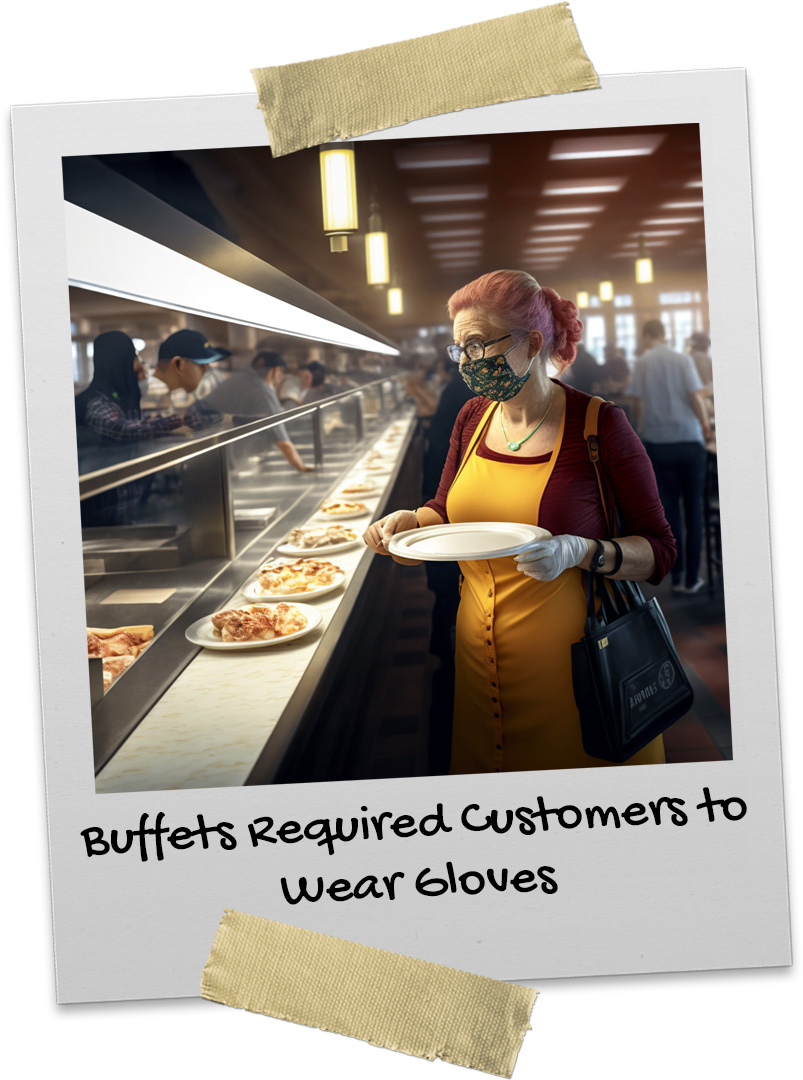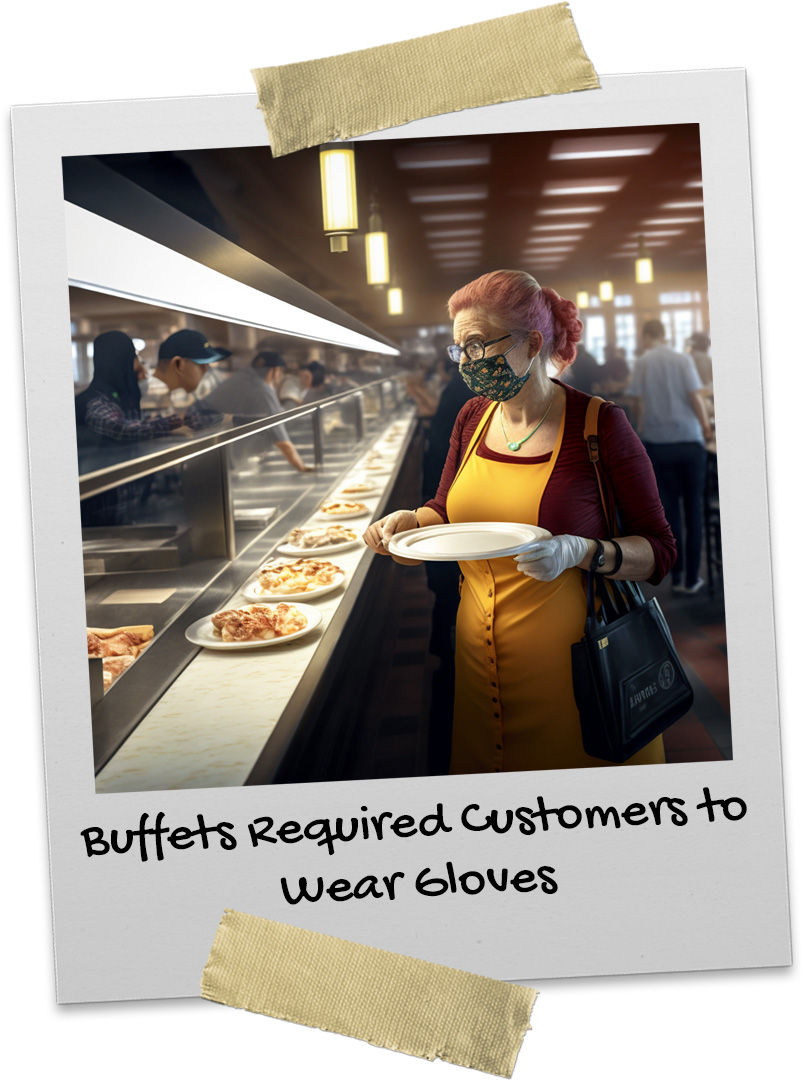Buffets Required Customers to Wear Gloves


Many states opened restaurants in phases. Full-service restaurants were allowed to open first, in reduced capacity. In a second phase, they were allowed to open with larger capacity. In this second phase, buffet-style restaurants were also allowed to open, with many safety protocols put in place.
Buffet-style restaurants, which allow customers to serve themselves from a selection of food, were considered high-risk for the transmission of COVID-19. With people coming into close contact with shared utensils and surfaces, there was a risk of the virus spreading from person to person.
For this reason, many buffet-style restaurants were forced to close their doors during the early days of the pandemic. For instance, Golden Corral shut down every single restaurant they run in 42 states. As the months wore on and the risk of transmission began to decrease, some of their restaurants were able to reopen with a few changes. They added contact tracing, and the restaurant were reconfigured to allow for social distancing. When it was time to serve the food, each customer was handed plastic gloves and a plate. The offerings were reduced, and some items were altogether eliminated. In some restaurants, they converted the self-serve model to cafeteria style, where an employee served the food to each patron.
While the requirement to wear gloves was met with some hesitation by the public, it seemed to be an effective measure in reducing the risk of transmission. And as the pandemic wore on, more and more buffet-style restaurants began to implement similar measures.
Not all buffet-style restaurants were able to weather the storm of the pandemic. Sweet Tomatoes (operating as Souplantation in southern California) was a popular chain of buffet-style restaurants. All 97 locations went out of business on May 7, 2020, in the face of declining sales and the challenges posed by the pandemic. The closure of Sweet Tomatoes was met with sadness by many customers, who had come to rely on the chain for its fresh and flavorful food. For the company, the decision to close was a necessary one in the face of the challenges posed by the pandemic.



